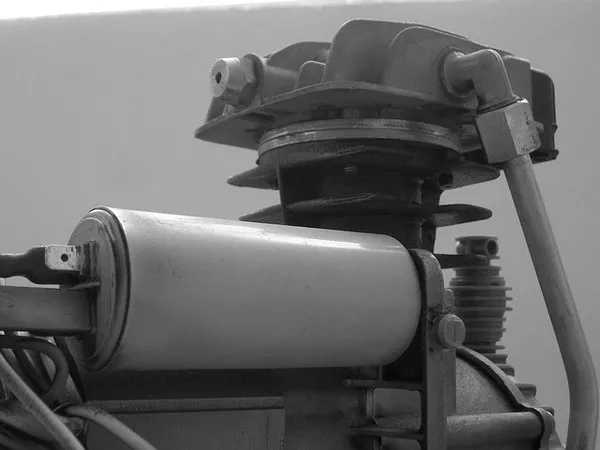In the realm of automotive engineering, every component plays a crucial role in ensuring optimal performance and comfort for vehicle occupants. Among these, the air conditioning (AC) compressor stands out as a vital part, particularly in regions with warm climates or during hot summer months. For Honda vehicles, renowned for their reliability and efficiency, the longevity of their AC compressors is a significant concern for both vehicle owners and enthusiasts. In this article, we delve into the factors influencing the lifespan of Honda AC compressors and provide insights into maintenance practices that can prolong their durability.
The Functionality of Honda AC Compressors
Honda AC compressors are responsible for pressurizing refrigerant gas, facilitating the transfer of heat from the cabin to the outside environment, thereby cooling the interior air. This process involves the compression of low-pressure refrigerant vapor into high-pressure gas, which then flows through the system, releasing heat as it condenses into a liquid. The compressed refrigerant is subsequently expanded through the evaporator, absorbing heat from the cabin air and providing the desired cooling effect.
Factors Affecting Longevity
Several factors influence the lifespan of Honda AC compressors, ranging from design and manufacturing quality to environmental conditions and usage patterns. Understanding these factors is essential for assessing the expected longevity of the compressor and implementing measures to maximize its lifespan.
Quality of Components
The quality of materials and components used in manufacturing Honda AC compressors significantly impacts their durability. Honda, renowned for its commitment to engineering excellence, employs high-grade materials and stringent quality control measures in the production of automotive components. As a result, OEM (Original Equipment Manufacturer) AC compressors installed in Honda vehicles are generally durable and long-lasting.
Environmental Conditions
Environmental factors such as temperature, humidity, and exposure to contaminants can affect the performance and lifespan of AC compressors. High temperatures and humidity levels place greater strain on the compressor, potentially accelerating wear and reducing its lifespan. Similarly, exposure to contaminants such as dust, dirt, and road debris can compromise the integrity of compressor components, leading to premature failure.
Usage Patterns
The frequency and intensity of AC usage also influence the longevity of Honda AC compressors. Continuous operation at maximum capacity or frequent cycling on and off can increase wear on compressor components, particularly the clutch and bearings. Additionally, sudden changes in temperature, such as rapid cycling between extreme heat and cold, can place additional stress on the compressor, potentially shortening its lifespan.
Maintenance Practices
Regular maintenance is critical for preserving the performance and longevity of Honda AC compressors. Routine inspection and servicing of the AC system can help identify potential issues early and prevent costly repairs or replacements. Key maintenance practices include:
1. Inspecting Refrigerant Levels
Maintaining proper refrigerant levels is essential for the efficient operation of the AC system and the longevity of the compressor. Periodic inspection of refrigerant levels can help detect leaks or inadequate charging, allowing for timely correction to prevent compressor damage.
2. Checking for Refrigerant Leaks
Refrigerant leaks not only compromise the cooling efficiency of the AC system but also pose a risk of compressor damage due to inadequate lubrication. Regular inspection for leaks and prompt repair can help prevent compressor failure and extend its lifespan.
3. Cleaning and Inspecting Components
Regular cleaning and inspection of AC components, including the condenser, evaporator, and compressor, can help prevent the accumulation of dirt, debris, and contaminants. Clean components facilitate proper airflow and heat transfer, reducing strain on the compressor and prolonging its lifespan.
4. Lubricating Moving Parts
Proper lubrication of moving parts, such as compressor bearings and clutch mechanisms, is essential for reducing friction and wear. Lubricant levels should be checked regularly, and worn or damaged components should be replaced promptly to prevent premature compressor failure.
5. Monitoring Performance
Regular monitoring of AC system performance, including cooling efficiency and compressor operation, can help identify potential issues before they escalate. Unusual noises, vibrations, or fluctuations in cooling performance may indicate underlying compressor problems requiring attention.
See Also How Much Is Labor To Install Ac Compressor
Conclusion
In conclusion, the lifespan of Honda AC compressors is influenced by various factors, including component quality, environmental conditions, usage patterns, and maintenance practices. By understanding these factors and implementing appropriate maintenance measures, Honda vehicle owners can ensure the longevity and reliability of their AC compressors, thereby enhancing overall driving comfort and satisfaction. Regular inspection, servicing, and prompt repair of AC system components are essential for preserving compressor performance and mitigating the risk of costly repairs or replacements. With proper care and maintenance, Honda AC compressors can provide years of trouble-free operation, contributing to a positive ownership experience for vehicle owners.

